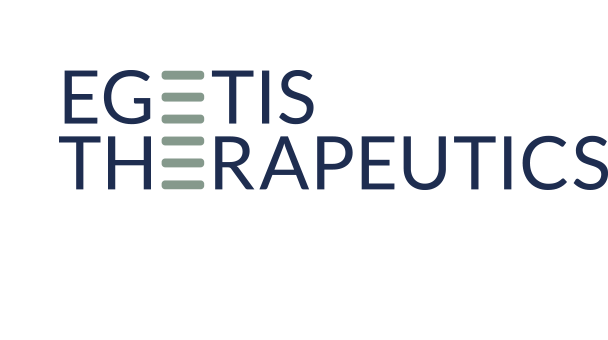Pledpharma announces positive results from the Aladote® proof of principle study
September 24, 2018
Today PledPharma (publ) announces that the Aladote® proof of principle study in patients with paracetamol overdose at risk of liver damage has successfully met the primary endpoint of safety and tolerability. Secondary endpoints included exploratory biomarkers for prediction of liver injury, the results indicate a positive signal of reduced paracetamol-induced liver injury in patients treated with Aladote®.
The proof-of-principle trial (phase 1b/2a) was conducted at the Royal Infirmary of Edinburgh and The Queen’s Medical Research Institute, University of Edinburgh under the supervision of Dr. James Dear, who is a leading international expert in the treatment of paracetamol/acetaminophen intoxication.
The primary objective of the trial was to evaluate the safety and tolerability of Aladote® in combination with N-acetylcysteine (NAC). NAC is the current standard of care for the treatment of paracetamol poisoning. In addition, several biomarkers of liver damage were measured. In total, 24 patients were recruited to three different dose cohorts with eight patients per cohort. In each cohort, six patients were treated with the combination of Aladote® and NAC and two were treated with NAC alone as control. The study results established the safety and tolerability of the combination of Aladote® and NAC. Further, the results indicate that Aladote® may reduce liver injury in this patient population. This is based on the measurement of the pre-defined exploratory biomarkers, Keratin-18 (K18) and microRNA-122 (miR-122) in patients treated with Aladote® and NAC compared to NAC alone. There was no difference in alanine transaminase (ALT) activity across the treatment groups.
K18 and miR-122 are supported for exploratory use in assessing drug-induced liver injury in clinical trials, both by the European Medicines Agency (EMA) and the US Food and Drug Administration (FDA).
Detailed data from the study will be presented at a future scientific meeting.
“There is a clear unmet need for a new treatment for paracetamol overdose. At the moment the only treatment strategies are NAC or liver transplantation. NAC loses effectiveness if not given within 8 hours of the overdose. Aladote appears safe and tolerable and may have efficacy. This represents a major new therapeutic opportunity for a common medical emergency”, says Dr. James Dear, University of Edinburgh, the lead investigator of the study.
“We are very excited to have seen the potential for liver protecting signals in patients treated with Aladote at this early stage of development with such a small number of patients. With these results in hand, PledPharma will continue to work on the development strategy and design of the next study. A decision on next steps will be taken before year end” says PledPharma’s CEO Nicklas Westerholm.
About Biomarkers
ALT
Alanine transaminase (ALT) is a transaminase enzyme also called alanine aminotransferase (ALAT). ALT is found in plasma and in various body tissues especially the liver’s hepatocytes. Serum ALT is commonly measured clinically as part of a diagnostic evaluation of hepatocellular injury, to determine liver health. However, ALT has sub-optimal sensitivity and specificity particularly early after paracetamol overdose. Reference: K. Al-Hourani et al. Q J Med 2013; 106:541–546
Keratin-18 (K18)
In paracetamol overdose, the full-length variant of K18 is released by necrotic cell death. A shorter, caspase cleaved form of K18 is released following cell apoptosis (programmed cell death). Both forms of K18, measured in the first serum sample at presentation at the hospital after paracetamol overdose, correlate with peak ALT activity during the hospital stay. Full length K18 distinguished patients with and without acute liver injury at an early time where ALT activity was still normal. This is consistent with necrosis being more prominent than apoptosis in the pathophysiology of paracetamol-induced acute liver injury.
References: JW Dear et al. Lancet Gastroenterol Hepatol 2018; 3: 104–13; ADB Vliegenthart et al. Br J Clin Pharmacol. 2015; 80: 351–362.
microRNA-122 (miR-122)
miR-122 is a biomarker specific for liver injury and fully conserved (translational) across in vitro models, in vivo models and humans. MiR-122 is an early marker for acute liver injury which predicts a rise in ALT activity following paracetamol overdose. When miR-122 was measured at hospital presentation after a paracetamol overdose in patients requiring subsequent NAC therapy the circulating miR-122 concentration correlated significantly with peak hospital stay ALT activity. MiR-122 was significantly higher in those patients who developed subsequent acute liver injury. miR-122 can accurately separate patients with and without acute liver injury at an early time when ALT activity was still normal. This is consistent with miR-122 having enhanced sensitivity and specificity in this context of use.
References: JW Dear et al. Lancet Gastroenterol Hepatol 2018; 3: 104–13; ADB Vliegenthart et al. Br J Clin Pharmacol. 2015; 80: 351–362.
For more information, please contact:
Nicklas Westerholm, CEO, phone: +46 73 354 20 62
nicklas.westerholm@pledpharma.se
Yilmaz Mahshid, CFO, phone: +46 72 231 68 00
yilmaz.mahshid@pledpharma.se
About Aladote®
Aladote® is a “first-in-class” drug candidate with the potential to prevent the development of acute liver failure caused by paracetamol overdose. Aladote® has shown good efficacy in relevant preclinical models, even in the time-window when N-acetylcysteine (NAC) treatment no longer is effective. A proof of principle study in patients with paracetamol poisoning is ongoing at the Royal Infirmary of Edinburgh.
Paracetamol is the most used drug in the world for the treatment of fever and pain, but also one of the most overdosed drugs – intentional or unintentional. Paracetamol overdose is also one of the most common methods used in intentional suicide attempts. 100,000 cases of paracetamol overdose are admitted per annum in UK alone. When excessive amounts of paracetamol are broken down in the liver, the harmful metabolite NAPQI is formed, which can cause acute liver failure. The current standard of care for paracetamol poisoning (NAC) is effective if the patient seeks medical care within 8 hours of ingestion. However, NAC is substantially less effective if started more than 8 hours after overdose.
About PledPharma
PledPharma develops new drugs that protect the body against oxidative stress – a potentially debilitating and sometimes life-threatening condition that can be caused by chemotherapy treatment and following acetaminophen (paracetamol) overdose. The company’s most advanced project PledOx® is being developed to reduce nerve damage associated with chemotherapy. A phase IIb study has been conducted and serves as the basis for the initiated global phase III program. The drug candidate Aladote® is being developed to reduce the risk of acute liver failure associated with acetaminophen poisoning. A proof of principle study has been completed and will serve as the basis for the continued development. PledPharma (STO: PLED) is listed on Nasdaq First North. Erik Penser Bank is the company’s Certified Adviser (tel +46 8 463 80 00). For more information, see https://www.egetis.com/
This information is information that PledPharma AB (publ) is obliged to make public pursuant to the EU Market Abuse Regulation. The information was submitted for publication, through the agency of the contact person set out above, at 08:30 CET on September 24, 2018.

